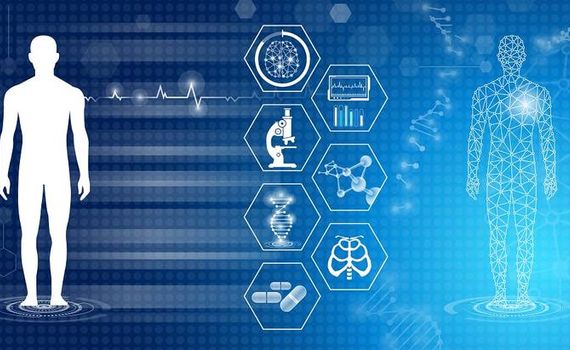Mar 29: Multiomics and machine learning can predict optimal therapy in rheumatoid arthritis
Mar 29: Multiomics and machine learning can predict optimal therapy in rheumatoid arthritis

Machine learning models based on molecular signatures (also named multiomics) of patients with rheumatoid arthritis (RA) accurately predict the individual clinical response to the biological TNF inhibitors adalimumab and etanercept. This innovative approach is expected to pave the way toward personalized anti-TNF treatment in RA patients, as was concluded by Weiyang Tao (UMC Utrecht) in his PhD thesis that he will defend on March 30.
‘Omics’ in biology is a general term for big data analysis of molecular-biological samples and can consist of genomics, transcriptomics, proteomics and metabolomics. This method has become more easily accessible because of the revolution in high-throughput technologies. Multiomics approaches (combining two or more omics) have increasingly been integrated and applied by many studies to study a wide range of biological problems, including disease mechanisms, biomarker identification, and patient classification. Multiomics – especially in combination with machine learning - (also known as 'systems medicine') has significant promise to provide a better understanding of autoimmune diseases, including systemic sclerosis (SSc), psoriatic arthritis (PsA), psoriasis (Pso), ankylosing spondylitis (AS), and rheumatoid arthritis (RA), ultimately facilitating true personalized medicine.
Unravelling disease mechanisms
The first part of the PhD work by Weiyang Tao (Center for Translational Immunology, UMC Utrecht) focused on using multiomics to reveal disease mechanisms from the perspective of studying the stimulation of immune cells by cytokines (regulatory proteins involved in immunity and inflammation). His multiomics-based research provided a novel potential mechanism of the cytokine CXCL4 involvement as a driving force in inflammation and fibrosis in patients with SSc. In addition, he also developed an open-source analytical tool for gene/protein expression called RegEnrich that can be used to predict key gene regulators in different biological states, which is pivotal to understand biological processes and the mechanisms of complex diseases.
Personalized medicine
In the second part of his thesis, Weiyang Tao described the multiomic commonality and distinction between patients with different autoimmune diseases (PsA, Pso, and AS) or with different subtypes of the same disease (RA). In one study, his research has revealed serum proteomic signatures shared between patients with Pso and PsA, which supports the concept of a single psoriatic spectrum of disease.
Weiyang Tao also describes the divergent multiomic signatures between responders and non-responders to TNF inhibitors. Tao and his colleagues analyzed gene expression and/or DNA-methylation in immune cells obtained from 80 RA patients prior to allocation to either adalimumab (ADA) or etanercept (ETN). After 6 months, treatment response was evaluated and multiomics analyses were performed to identify response-associated signatures. Based on these findings, machine learning algorithms allowing discrimination between responders and non-responders to ADA and ETN were built, tested and validated. The outcome of this study indicated that machine learning models based on multiomics can accurately predict patient response to treatment with ADA and ETN. This new technology paves the way toward true personalized anti-TNF treatment in RA, resulting in (1) reducing the time to effective treatment, (2) optimal disease remission and (3) a lower healthcare cost.
What is 'systems medicine'?
In deze folder bevindt zich extra informatie door middel van een video. Scan de bovenste QR-code met uw telefoon om deze video te bekijken. Of bekijk de video via:
About his expectations for the future of omics Weiyang Tao says: “Use of multiomics and machine learning can facilitate personalized medicine, either by a better understanding of diseases or simply by providing informative drug response predictors. With the cost of omics decreasing, the amount of multiomic data will continue to grow. With the aid of machine learning approaches, I foresee a bright future for personalized medicine, in addition to a better understanding of the mechanisms underlying complex diseases.”
PhD defense
Weiyang Tao (1991, Hukou, Jiujiang City, China) will defend his PhD thesis on March 30, 2021 at Utrecht University. The title of his thesis is “Multi-omics: uncovering mechanisms of diseases and making medicine personalized”. Supervisor is prof. dr. Timothy Radstake and co-supervisor is dr. Aridaman Pandit (both Center for Translational Immunology, UMC Utrecht). After defending his thesis, Weiyang Tao will return to China to continue his work in academia.

